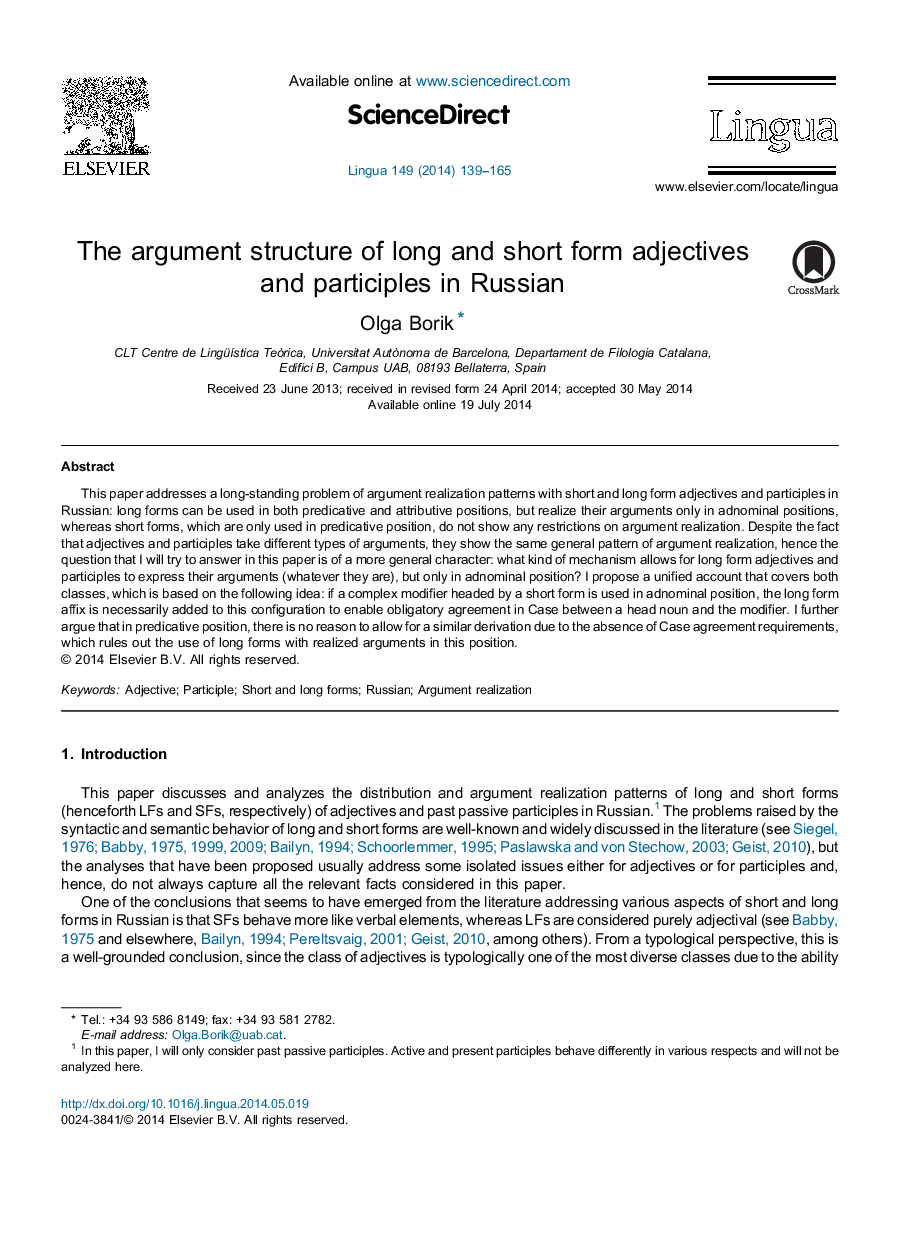| Article ID | Journal | Published Year | Pages | File Type |
|---|---|---|---|---|
| 935421 | Lingua | 2014 | 27 Pages |
•The distribution and argument realization of adjective and participles is addressed.•Short forms are verbal elements and can realize their arguments just like verbs.•Long forms, but not short forms inflect for Case.•Case is the main reason for the observed argument realization pattern of long forms.
This paper addresses a long-standing problem of argument realization patterns with short and long form adjectives and participles in Russian: long forms can be used in both predicative and attributive positions, but realize their arguments only in adnominal positions, whereas short forms, which are only used in predicative position, do not show any restrictions on argument realization. Despite the fact that adjectives and participles take different types of arguments, they show the same general pattern of argument realization, hence the question that I will try to answer in this paper is of a more general character: what kind of mechanism allows for long form adjectives and participles to express their arguments (whatever they are), but only in adnominal position? I propose a unified account that covers both classes, which is based on the following idea: if a complex modifier headed by a short form is used in adnominal position, the long form affix is necessarily added to this configuration to enable obligatory agreement in Case between a head noun and the modifier. I further argue that in predicative position, there is no reason to allow for a similar derivation due to the absence of Case agreement requirements, which rules out the use of long forms with realized arguments in this position.
